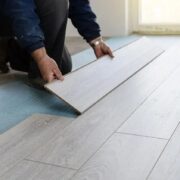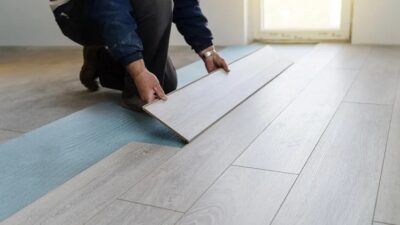Water softeners harness a clever process to rid households of hard water woes. If you’ve ever noticed soap scum on fixtures or spots on dishes, it’s likely hard water is to blame. But how exactly do these popular home appliances make water soft? Read on to get the 411 on how water softeners work their magic behind the scenes.
Table of Contents
The Science Behind Water Softening
Hard water forms when underground water sources absorb minerals like calcium and magnesium from contact with rocks and soil. These minerals are what make hard water solid, giving it that limescale buildup effect.
Water softeners counteract hard water’s downsides through ion exchange. It’s a process utilizing resin beads to clean water and here’s how it works briefly.
How Resin Beads Help
Every water softener has a tank filled with small resin beads at its core. In reality, these beads are a kind of plastic that has been coated in sodium ions.
The calcium and magnesium ions in the hard water cling to the sodium ions on the resin as it enters the tank. Instead of the original hard water minerals, they do this. What makes previously “hard” water soft is this ion exchange.
Regeneration Keeps Beads Performing
Over time, the resin beads become saturated with calcium and magnesium. That’s when the water softener triggers its regeneration cycle. A brine solution— water mixed with pelletized salt—is slowly flushed through the resin tank.
This process introduces more sodium ions to the resin beads, pushing off the calcium and magnesium ions collected during previous softening cycles. The rinse water is then drained away, taking the displaced hard water ions with it. Fully regenerated, the entire process then repeats.
Additional Benefits of Soft Water
Aside from preventing scummy limescale buildup, soft water provides other advantages. Clothes washed in soft water come out cleaner and brighter since detergents can dissolve more easily. Hard water leaves behind a residue that dulls fibers over time.
Softened water also rinses away soap and shampoo more thoroughly, so hair and skin feel smoother and look healthier. Soft water even elongates the lifespan of pipes and water-using appliances since scale deposition won’t shorten their days.
Water Softener Efficiency and Sizing
The amount of softened water a unit can produce depends on its size. Larger homes with multiple bathrooms generally need larger, more efficient models.
Other factors like water hardness levels and household water usage also influence which size is suitable. Water treatment professionals can test your water and recommend a properly sized softener. Oversized units waste salt and electricity, while undersized options won’t fully treat all water used.
Keep Your Softener in Top Shape
To ensure a water softener keeps working in tip-top form, some general maintenance practices help. Regularly check brine and resin levels and add salt or resin when needed. Inspect external hoses and pipes for leaks as well.
Experts also recommend annual service by a treatment professional or plumber to inspect internal components and replace any worn parts. Proper upkeep keeps your water softener system performing flawlessly for years.
In Summary
Water softeners rely on ion exchange resin beads and the regeneration process to remove ions from hard water sources. By using this clever technique, households enjoy the many benefits of soft water. With regular maintenance and care, a water softener remains a worthwhile investment for pure, spot-free water.















Comments